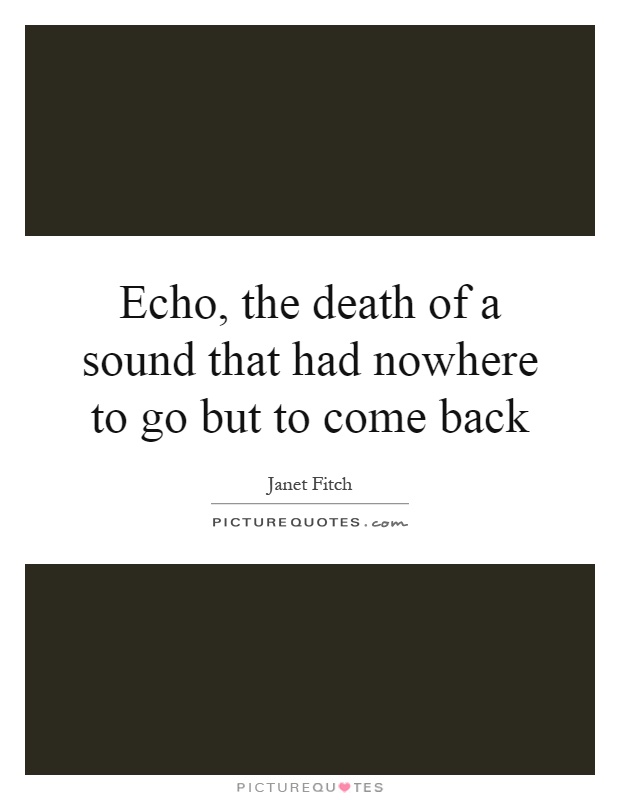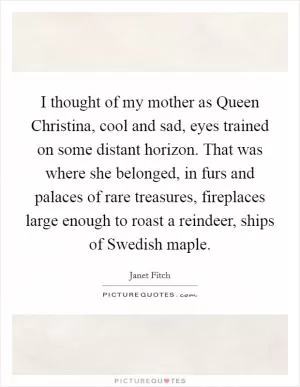Echo, the death of a sound that had nowhere to go but to come back

Echo, the death of a sound that had nowhere to go but to come back
In the world of Janet Fitch, echoes are a powerful symbol of the cyclical nature of life and the inevitability of death. In her novels, echoes serve as a haunting reminder of the past, a reflection of the choices we make and the consequences that follow. Echoes are a constant presence, a ghostly reminder of what once was and what will never be again.In Fitch's novel "White Oleander," echoes play a significant role in the protagonist Astrid's journey of self-discovery and healing. Astrid's mother, Ingrid, is a larger-than-life figure whose presence looms over Astrid long after she is gone. Ingrid's voice echoes in Astrid's mind, a constant reminder of the pain and trauma she inflicted. The echoes of Ingrid's words and actions shape Astrid's sense of self and her understanding of the world around her.
As Astrid navigates the challenges of growing up in foster care and finding her own identity, she is forced to confront the echoes of her past. The death of Ingrid, both literal and metaphorical, leaves Astrid grappling with the legacy of her mother's actions and the impact they have had on her own life. The echoes of Ingrid's voice continue to reverberate in Astrid's mind, a reminder of the pain and suffering she endured at the hands of her mother.
In Fitch's world, echoes are not just a literary device, but a powerful force that shapes the lives of her characters. The death of a sound that had nowhere to go but to come back is a metaphor for the inescapable nature of our pasts and the ways in which they continue to influence our present and future. Just as an echo cannot be silenced, the echoes of our pasts cannot be erased. They are a part of who we are, shaping our choices and our destinies in ways we may never fully understand.












 Friendship Quotes
Friendship Quotes Love Quotes
Love Quotes Life Quotes
Life Quotes Funny Quotes
Funny Quotes Motivational Quotes
Motivational Quotes Inspirational Quotes
Inspirational Quotes